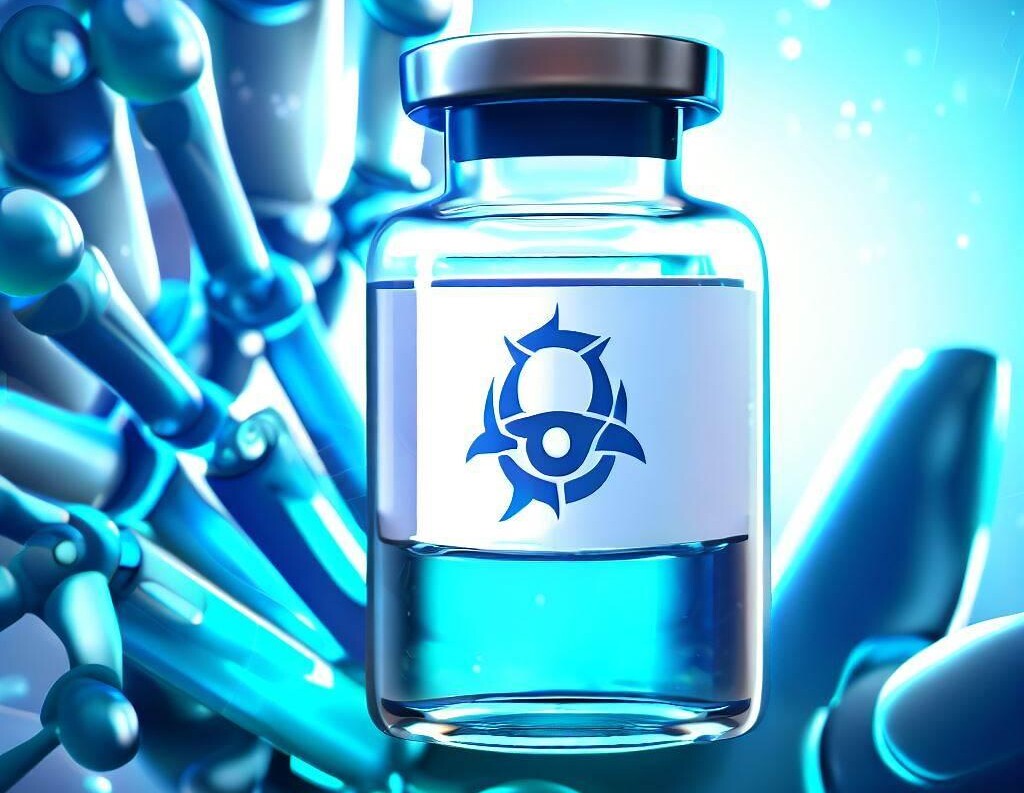It has been scientifically proven that cancer is one of the most common diseases in the world. According to the American Cancer Society, about 1.9 million new cases of cancer were registered in the United States in 2022, of which 609,360 were fatal.
Despite the fact that great progress has been made in medicine, humanity still needs to invent an improved cancer therapy. One of the key tasks is to solve the problem of tumor heterogeneity. This means that neoplasms are composed of different types of cells with different molecular features. This allows tumors to be resistant to drugs. Therefore, the world's leading oncologists and other specialists develop new methods of cancer treatment every year. They take into account the individual characteristics of malignant tumors.
In this article, the medical authors of Experts Medical have collected all the relevant information so that you can learn more about the world's leading cancer treatments.
Clinics in Germany, Israel, and Spain offer patients 2 unique methods of treating cancer. These are therapies that improve the prognosis for people with advanced and complex cancers.
Personalized vaccines
It is suitable for the treatment of malignant tumors caused by genetic mutations. These mutations are unique to each cancer. Personalized cancer vaccines are special injections that are created in the laboratory based on the analysis of the tumor cells of a particular patient. Cancer vaccines stimulate the human immune system to recognize and destroy only malignant cells. RO7198457 is one of these vaccines. It showed good results in the treatment of melanoma. 66% of patients had a clinical response to therapy. This vaccine is being developed by Genentech and BioNTech and is used in leading clinics in Europe.

CAR-T
CAR-T therapy is a technology for targeting immune cells to attack a tumor. This technology was approved for use in 2018 for the treatment of cancer. Therapy with CAR-T (chimeric antigen receptor T-cell therapy) consists in extracting immune cells (T-lymphocytes) from the patient's blood. They are modified in the laboratory to produce special receptors that can bind to antigens on the surface of abnormal tumor cells.
The modified cells are injected back into the patient's body where they actively seek out and destroy the cancer. Abroad, CAR-T is also effectively used to treat certain forms of leukemia and lymphoma that are not amenable to other types of therapy.
Kymriah is one of the types of this therapy. It showed effectiveness in 83% of cases in the treatment of childhood acute lymphoblastic leukemia. This treatment was developed by Novartis. This technique is used in some clinics in Israel, Western Europe, USA, Japan, and Australia.
New in cancer treatment: developments and prospects
According to ClinicalTrials (a database of private and public clinical trials conducted around the world), new clinical trials are underway in 2023:
- in Germany - 15;
- in Italy - 23;
- in Israel - 8;
- in Spain - 25;
- in Turkey - 18;
- in France - 29.

Through ongoing clinical trials, patients around the world will be able to receive safer and more effective treatments for various cancers.
For comparison, as of June 2023, countries such as Uzbekistan, Kyrgyzstan, Latvia, and Estonia have not introduced any new research in the field of cancer treatment.
Examples of new technologies in cancer treatment
Medical science, like information technology, is developing without stopping. Scientists around the world conduct tens of thousands of clinical trials every year to develop new drugs to fight cancer. Among them, two of the most interesting and promising methods of therapy can be distinguished.
USE OF THE MICROBIOME IN CANCER THERAPY
The microbiome is the collection of all microorganisms that live in our body and affect health. The microbiome may also play a role in the development and treatment of cancer. Some microbes can contribute to the development of tumors by causing chronic inflammation or by damaging the DNA of cells. Other microbes may help fight cancer by boosting the immune response or modifying the way drugs work.
For example: Researchers have found that certain Bifidobacterium bacteria can enhance the effect of CAR-T therapy in treating leukemia in mice by activating immune cells in the gut. These bacteria may also increase the efficacy of anti-PD-1 and anti-PD-L1 immunotherapy in the treatment of melanoma and lung cancer. Conversely, some bacteria from the genus Akkermansia may reduce the effectiveness of immunotherapy in the treatment of breast cancer in mice by suppressing the immune response. These and other data suggest that microbiome manipulation may be a useful strategy to improve cancer treatment.
The microbiome can influence susceptibility to certain types of cancer and response to treatment. Especially on immunotherapy, which, as shown in preclinical models and patient groups, can be influenced by intestinal microbes. The gut microbiome is also able to influence the effectiveness of chemotherapy by modulating the patient's immunity.
Researchers are exploring the possibility of using the microbiome to improve cancer treatment outcomes. For example, an article in the journal Nature Medicine discusses current research on the use of the microbiome to prevent cancer.
Increasing the accuracy of medical technologies: nanomedicine
One of the problems with traditional cancer treatments such as chemotherapy and radiotherapy is that they affect not only tumor cells but also healthy tissues, causing serious side effects. Therefore, it is important to develop technologies that allow drugs or radiation to be delivered pointwise to the tumor, minimizing damage to surrounding tissues.
Nanomedicine is an example of this technology. Nanoparticles for the diagnosis and treatment of tumors are used. Nanoparticles can carry various types of drugs or radioactive elements and deliver them to the tumor using special target molecules that recognize tumor cells. Nanoparticles can also enhance the effect of thermal ablation, heating a tumor to high temperatures in order to destroy it. NanoTherm is one of these nanoparticles. It showed good results in the treatment of glioblastoma, one of the most aggressive types of brain cancer. According to clinical studies, 29% of patients continued to live for more than two years after therapy. This nanoparticle is being developed by MagForce. It is not widely used but the technology is already available in several medical centers around the world.
Modern cancer treatment: not the newest but the most effective techniques
In 2023, countries with developed medicine are actively using the latest methods of cancer treatment. Among them are immunotherapy, genetic engineering (for example, CAR-T therapy), CyberKnife irradiation, and other types of treatment. They are modern because according to the statistics of clinics, they have the best indicators of the effectiveness of the treatment of oncological diseases compared to a number of protocol methods.
Why is it important for foreign patients to know?
Most topical cancer treatments are not available in their area of residence. There is also the problem of using outdated models of devices or an insufficient number of drugs to choose from. This excludes or significantly limits the possibilities of targeted treatment for specific types of oncology. Therefore, often patients prefer to undergo therapy and surgical treatment of cancer abroad. This is most relevant for residents of Asia and Eastern Europe.

Let us briefly list the modern methods of oncology treatment that patients of leading foreign clinics can count on.
Modern methods of oncology treatment:
- Targeted therapy
This is the most gentle method of treatment with special drugs that only affect cancer cells and do not damage healthy tissues. Abroad, targeted therapy is prescribed for cancer of the lung, pancreas, breast, kidney, prostate, colon, and melanoma.
- Immunotherapy
This is a cancer treatment method that aims to activate the body’s immune system to fight abnormal cells. In foreign clinics, it is prescribed for the treatment of many types of cancer, including melanoma, cancer of the lung, kidney, stomach, bladder, pancreas, and Hodgkin’s lymphoma.
- Gene therapy
It is an introduction of the genetic material into a patient’s body that can destroy cancer cells or prevent them from multiplying. It is indicated for patients with retinoblastoma, nasopharyngeal cancer, and other malignant tumors.
- Proton therapy
It is a type of radiation therapy that uses protons to kill cancer cells. It is more precise and gentle compared to conventional radiation therapy. Proton therapy is available only in specialized centers located in just a few countries around the world. It is effective in treating head and neck, lung, esophagus, breast, stomach, anal, rectal, and bone cancers.
- CyberKnife
It is a non-invasive cancer treatment. The device acts on the tumor through intact skin, which is why it is also called a radiosurgical system. CyberKnife is used to remove (complete or partial) various neoplasms, but most often the device is used in patients with tumors of the brain and spinal cord. Radiosurgery is effective in cases with tumors that are difficult to access surgically.
- Tomotherapy
This is a type of radiation therapy, in which tomography to accurately determine the size and shape of the tumor is used. Tomometry guarantees the successful treatment of malignant tumors located in moving parts of the body such as the lungs.
- Robot-assisted surgery for tumor removal
The use of surgical robots allows for more precise and less traumatic operations. Most often, the Da Vinci robot assistant is used to remove prostate cancer.
This is not the whole list of medical technologies and medicines available in foreign clinics. But it was these cancer treatments that received the most positive feedback from patients who sought help from Experts Medical.
WHY ARE THE LATEST CANCER TREATMENTS NOT AVAILABLE IN ALL COUNTRIES?
Countries with developed medicine usually have a high level of health care and a well-developed system of patient care. According to the data of Numbeo (the world's largest database of cities and countries), Germany, South Korea, and France are the top countries in terms of the level of medical care.
Regarding the treatment of oncology, the most popular areas for foreigners are Germany, Israel, Spain, Turkey, the Czech Republic, and South Korea. These countries have a high level of medical care and offer new methods of fighting cancer. At the same time, the cost of medical services in Israeli and Turkish hospitals will be more affordable than in American or Western European clinics.
When choosing a country for cancer treatment, it is important not only to consider the general level of medicine in the state. You need to choose a clinic with a good rating in the field of treatment of a particular disease using the most effective technique.
Where to go to try new cancer treatments?
New methods of oncology treatment open up prospects for patients who are looking for a clinic for treatment abroad. However, choosing the right hospital and doctor can be a difficult and costly process. With the help of Experts Medical's doctor selection service and leading hospitals, patients have access to the best solutions for each individual case.

Experts Medical is an online platform that connects patients with medical centers around the world. The company's doctors-coordinators will be able to offer innovative cancer treatment methods that are available in various hospitals in Europe, Turkey, Israel, and South Korea.

- get a free consultation from qualified doctors who will evaluate your medical history and provide several clinics to choose from;
- compare prices and conditions of treatment in different hospitals and countries, as well as read reviews from other patients;
- book flights, transfers, and accommodation for your treatment abroad;
- receive support during the entire treatment process from a personal manager of the company.
Experts Medical works only with proven and accredited clinics that have a high level of quality of treatment and safety for foreigners. The company guarantees the confidentiality and protection of your personal data. Medical coordinators specialize in organizing trips to foreign hospitals where they practice modern methods of treating malignant neoplasms.
Sources:
- Cancer Facts & Figures 2022| American Cancer Society
- https://www.labiotech.eu/in-depth/cancer-treatments-immuno-oncology/
- https://www.weforum.org/agenda/2022/05/cancer-treatment-and-diagnosis-breakthroughs/
- Targeting the gut and tumor microbiota in cancer | Nature Medicine
- https://ccr.cancer.gov/news/horizons/article/human-microbiome-in-cancer
- https://clinicaltrials.gov/ct2/results?cond=Cancer&term=2023&cntry=FR&state=&city=&dist=&Search=Search





